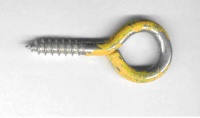Stage fixings: Difference between revisions
Jump to navigation
Jump to search
No edit summary |
No edit summary |
||
| Line 2: | Line 2: | ||
[[Image:Rsz_Pins.jpg|200px|thumb|left|stage pins]] | [[Image:Rsz_Pins.jpg|200px|thumb|left|stage pins]] | ||
| Line 39: | Line 38: | ||
[[Image:Rsz_stagescrew1.jpg|200px|thumb|left|stage screw]] | [[Image:Rsz_stagescrew1.jpg|200px|thumb|left|stage screw]] | ||
| Line 46: | Line 68: | ||
[[Image:Rsz stagescrew2.jpg|200px|thumb|left|set screw ]] | [[Image:Rsz stagescrew2.jpg|200px|thumb|left|set screw ]] | ||
| Line 51: | Line 87: | ||
[[Image:Rsz_bossplate.jpg|200px|thumb|left|boss plate]] | [[Image:Rsz_bossplate.jpg|200px|thumb|left|boss plate]] | ||
Revision as of 12:42, 11 September 2008
Stage pins are used to hold pin hinges together.
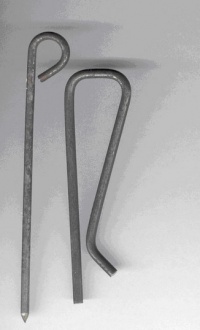
Stage screws are mainly used for fixing adjustable stage braces to the stage to make them more permanent. They are also used for attaching zip lines and metal hardware to the stage.
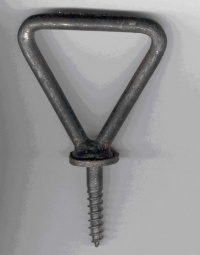
Set screws are similar to stage screws in look and use, except that they have to fit into a boss plate.
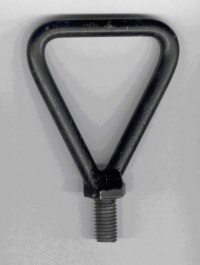
Boss plates are fitted to floors and scenery to take set screws and bolts.
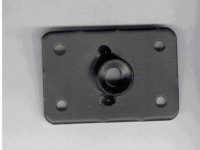
Screw eyes are primarily used on flats as a fixing for the top of an adjustable stage brace, but are useful for various odd jobs on stage.
